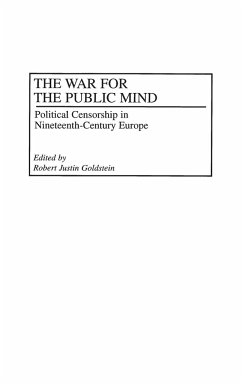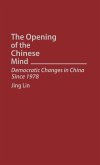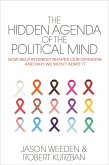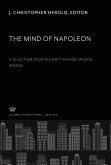From 1815 to 1914, European governments and their political oppositions were engaged in a constant war for the minds of the general population, especially the working classes. The German socialist newspaper, Hamburger Echo, declared on September 27, 1910, In waging our war, we do not throw bombs. Instead we throw our newspapers amongst the masses of the working people. Printing ink is our explosive. The most comprehensive study ever published about European censorship practices during the 1815-1914 period, this book discusses the censorship of books, newspapers, caricatures, theater, and film through an analytical introductory survey and six chapters by leading specialists who summarize 19th-century censorship practices in the six major countries of continental Europe: Germany, Italy, France, Austria, Russia, and Spain. As a result of the massive transformation of European life in the post-Napoleonic period and the simultaneously rapid growth in industrialization, urbanization, literacy, transportation, and communication, the average European emerged quite suddenly as a potential player who could no longer be ignored by the ruling elite.
Hinweis: Dieser Artikel kann nur an eine deutsche Lieferadresse ausgeliefert werden.
Hinweis: Dieser Artikel kann nur an eine deutsche Lieferadresse ausgeliefert werden.








